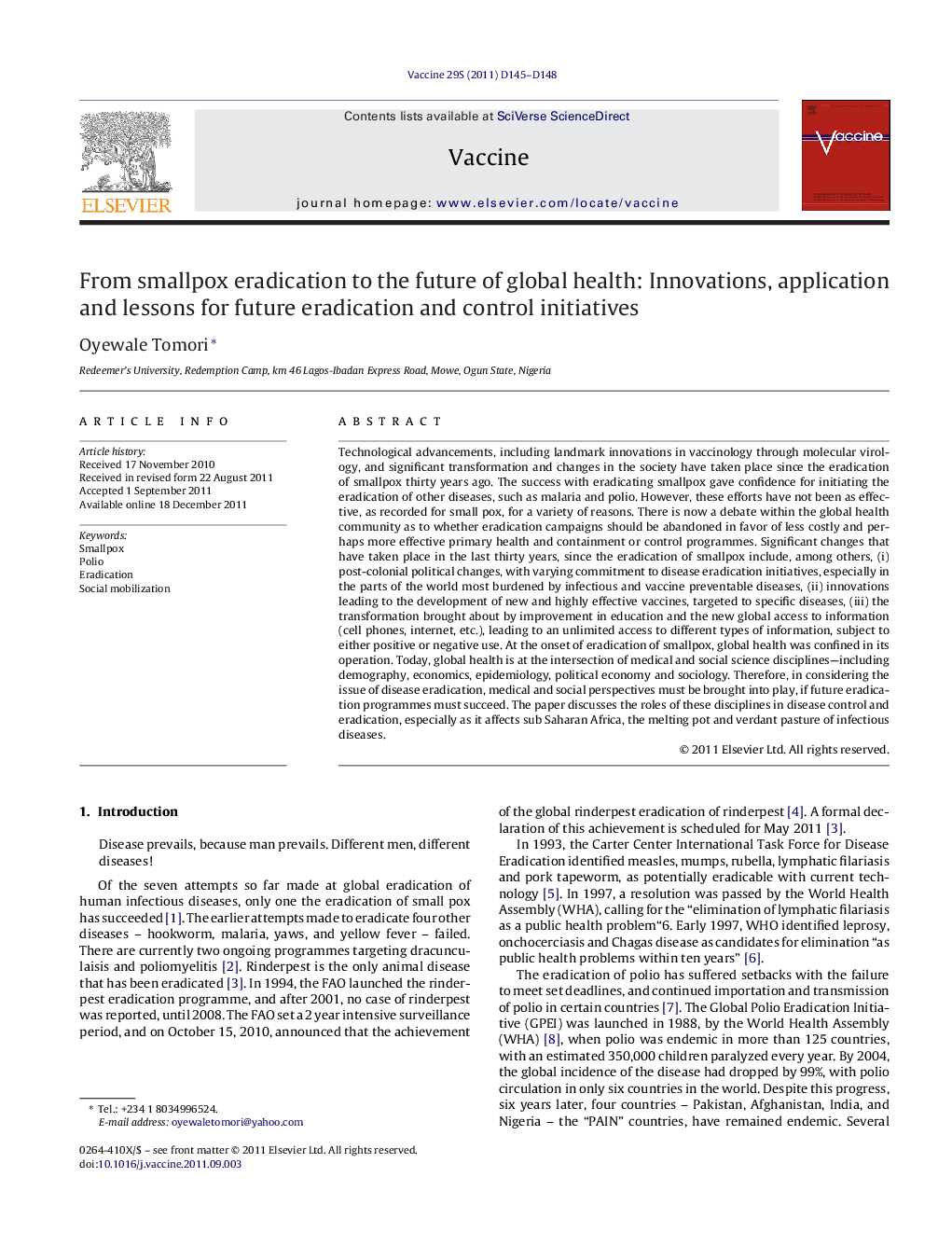| Article ID | Journal | Published Year | Pages | File Type |
|---|---|---|---|---|
| 2403650 | Vaccine | 2011 | 4 Pages |
Technological advancements, including landmark innovations in vaccinology through molecular virology, and significant transformation and changes in the society have taken place since the eradication of smallpox thirty years ago. The success with eradicating smallpox gave confidence for initiating the eradication of other diseases, such as malaria and polio. However, these efforts have not been as effective, as recorded for small pox, for a variety of reasons. There is now a debate within the global health community as to whether eradication campaigns should be abandoned in favor of less costly and perhaps more effective primary health and containment or control programmes. Significant changes that have taken place in the last thirty years, since the eradication of smallpox include, among others, (i) post-colonial political changes, with varying commitment to disease eradication initiatives, especially in the parts of the world most burdened by infectious and vaccine preventable diseases, (ii) innovations leading to the development of new and highly effective vaccines, targeted to specific diseases, (iii) the transformation brought about by improvement in education and the new global access to information (cell phones, internet, etc.), leading to an unlimited access to different types of information, subject to either positive or negative use. At the onset of eradication of smallpox, global health was confined in its operation. Today, global health is at the intersection of medical and social science disciplines—including demography, economics, epidemiology, political economy and sociology. Therefore, in considering the issue of disease eradication, medical and social perspectives must be brought into play, if future eradication programmes must succeed. The paper discusses the roles of these disciplines in disease control and eradication, especially as it affects sub Saharan Africa, the melting pot and verdant pasture of infectious diseases.
► Lessons learned from past global eradication initiatives were reviewed. ► Plans for future initiatives must be disease based. ► The plans must be adapted as lessons are learned. ► Disease eradication is of a higher public health and economic value than control. ► Disease eradication depends on considerations of the agent, host and social factors.
